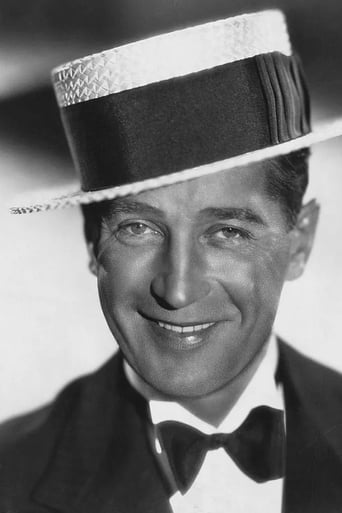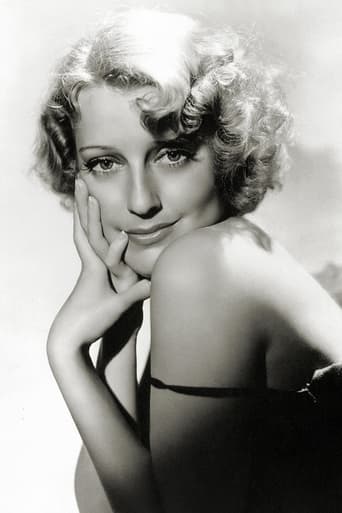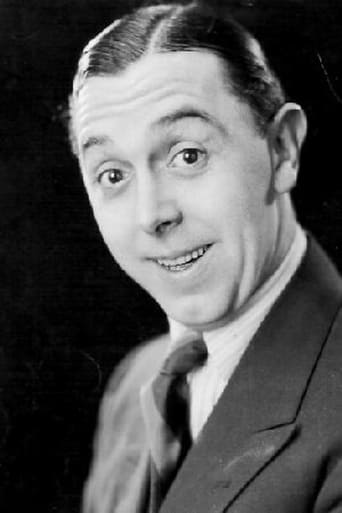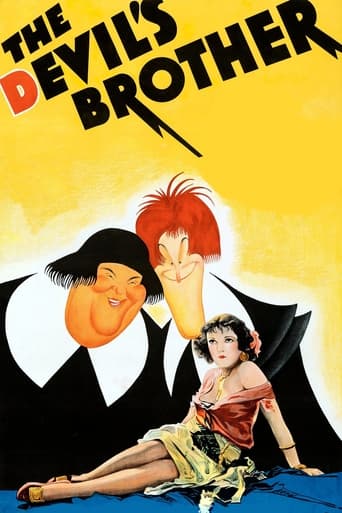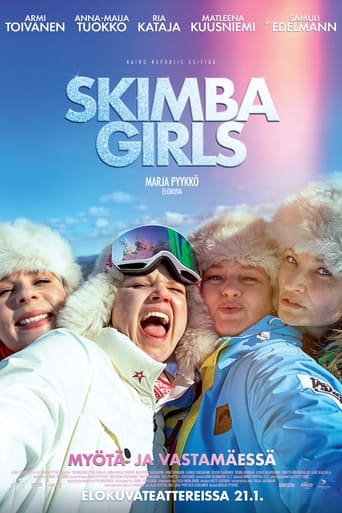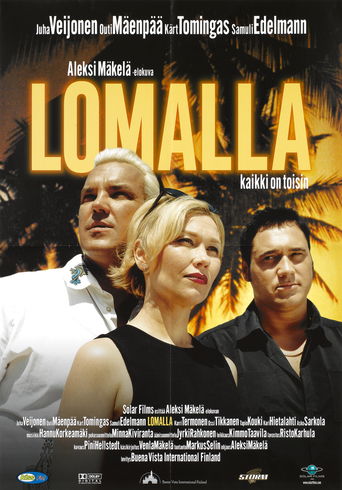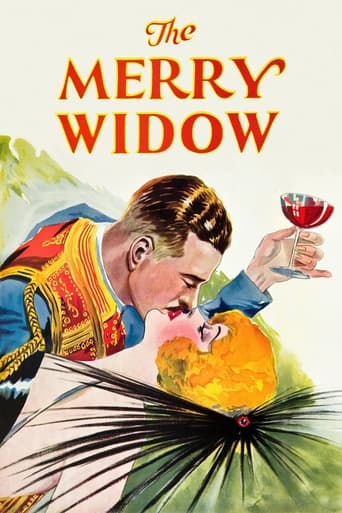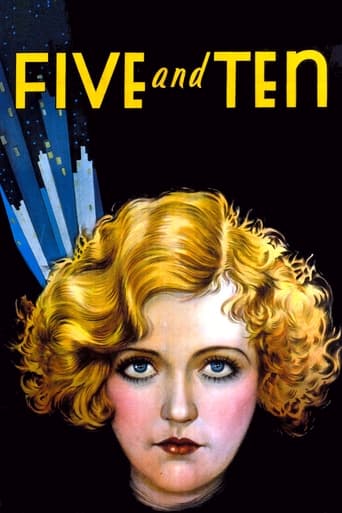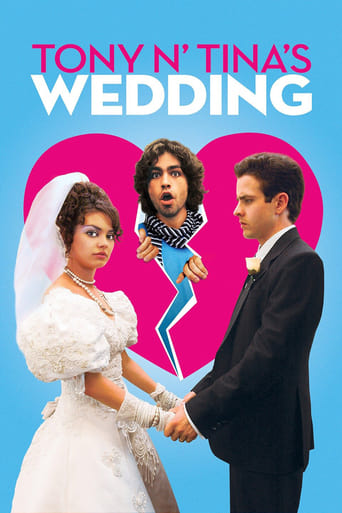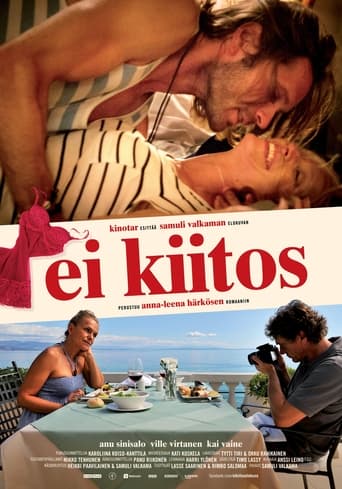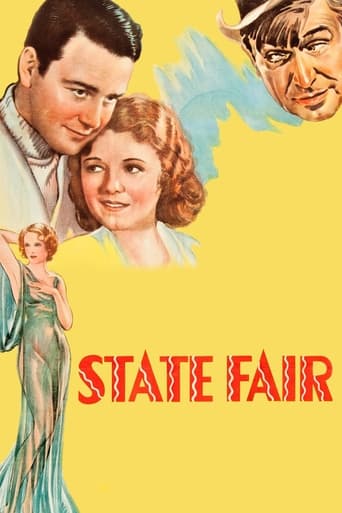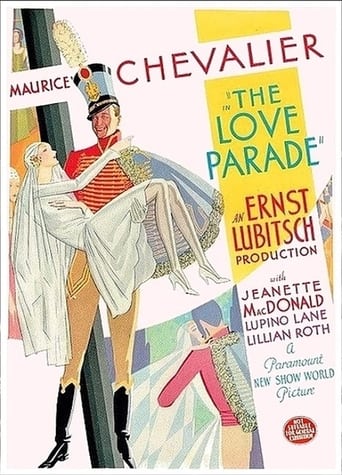
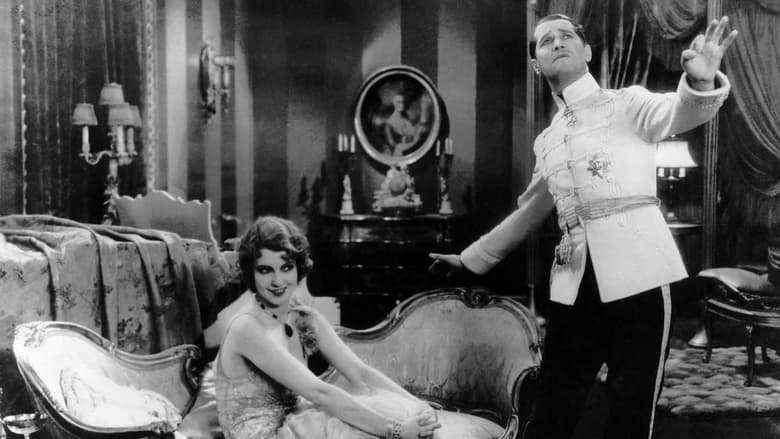
The Love Parade (1930)
The queen of mythical Sylvania marries a courtier, who finds his new life unsatisfying.
Watch Trailer
Cast
Similar titles
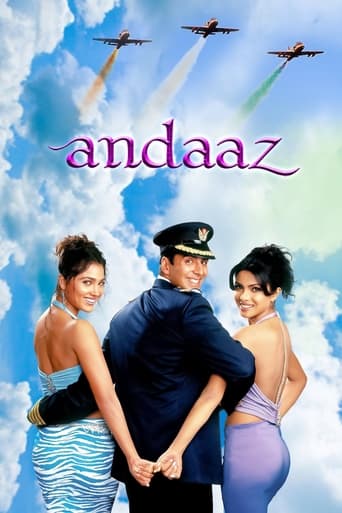
Reviews
Strong and Moving!
This is a tender, generous movie that likes its characters and presents them as real people, full of flaws and strengths.
If the ambition is to provide two hours of instantly forgettable, popcorn-munching escapism, it succeeds.
Fun premise, good actors, bad writing. This film seemed to have potential at the beginning but it quickly devolves into a trite action film. Ultimately it's very boring.
"Anything for the Queen" will be my new motto around the household, specifically for my bf. It is good to see that you can learn something from 82+ years ago for the first time.I've always been a fan of 30's musicals so it was a treat to see this movie for the first time of my life as a historical piece, but also to see the development of musical movies from the start. I am blessed to live within 30 miles of the Stanford Theater in Palo Alto, CA that offers amazing film histories, museum and revivals every week of the year.I can now see why Chevalier was such a hit -- he had natural wit, humor and timing, something I never witnessed in later films (such as Gigi) where his talents were mostly condensed down to singing.Jeanette McDonald's operatic singing was extraordinary, but does feel "dated" in the film in contrast to the impeccable performances, timing, dance and humor-filled vaudevillian routines of Lupino Lane and Lillian Roth. IMO they stole the show (sort of like a 'Jack & Karen' team did from "Will & Grace").I would see the movie again just to check out the servant scenes and a well-deserved nod to the animal trainer for the dog performances. The entire cinema was laughing at the opening goodbye to Paris scene.
The Love Parade which was Maurice Chevalier's second feature film is as fresh today as it was in 1929 when it garnered a whole flock of Academy Award nominations. It was Paramount's prestige film of the year, in fact I'm not sure if any other Paramount features got any nominations for anything that year.It was Ernst Lubitsch's first sound feature film and apparently the man with the famed Lubitsch touch hit the ground running in the new medium with a bunch of players who were also fresh to cinema because of the coming of sound. This was Jeanette MacDonald's film debut and while she's not billed over the title as Chevalier was, her part is every bit as important and as big as his. Maurice Chevalier has been cutting a wide swath among the ladies of Paris where he's attached to the embassy of Sylvania. So much so that he's been recalled to Sylvania for a reprimand or so he thinks.Jeanette MacDonald is the new young Queen of Sylvania and she's got to marry for reasons of state. As did many a female monarch, British ones like Victoria, Anne, and the two Marys all took husbands for reasons of state and the method they chose them was as much political as anything else. Only Elizabeth I managed to escape the marriage obligation.While her diplomats look askance on Chevalier's romantic antics, Jeanette sees in him one grand candidate for marriage. If she's got to get married for reasons of state by God she's going to pick a husband who's going to be ready to romp at a royal command.The Love Parade's musical score was written by Victor Schertzinger and Clifford Grey. The first notes Jeanette MacDonald ever sang on screen were from her hit song, Dream Lover. It's not the same song as Bobby Darin had a hit in the Fifties from. Film fans will recognize it as the flying theme that Cecil B. DeMille used as background music when Betty Hutton and Cornel Wilde were on the trapeze in The Greatest Show On Earth. Jeanette also sings March of the Grenadiers as she reviews her palace guard.Chevalier's two big numbers were Paris Stays The Same and My Love Parade from whence the title comes. Both were written to suit his grand boulevardier style. Some comic numbers were written for Lupino Lane and Lillian Roth who are the second leads. Lupino is Chevalier's orderly and Roth is one of her maids. They make a cute pair with their impish behavior, aping their masters.The Love Parade got six Oscar nominations, but did not win in any category and the categories were a lot fewer back in the day. It was up for Best Picture, Best Director, Best Actor for Maurice Chevalier, Best Sound Recording, Best Art Direction, and Best Cinematography. It also has a lot fewer overacted performances that were the norm in those early sound days. It was as if Ernst Lubitsch instinctively knew what to do with sound in film.The story is about a Prince Consort and usually the model that is held up is that of Prince Albert for Queen Victoria. But that's not the road Chevalier wants to take. It's a continental story and yet Lubitsch as he always did, made those stories appealing to American audiences. After 80 years, The Love Parade is still appealing.
100: The Love Parade (1929) - released 11/19/1929, viewed 6/10/08.DOUG: I always said that as soon as they released an Ernst Lubitsch box set, I would check it out. As Lubitsch's first sound film, 'The Love Parade' would have closed out the 20's for us. This is my 5th Lubitsch film, and he has yet to disappoint me. Right from the start, Lubitsch has an excellent handle on how to utilize sound, dialogue, and music, but still gets plenty of mileage out of dialogue-free business, such as the opening scene. The two leads spark nearly as much chemistry as they would later in 'Love Me Tonight': Chevalier (in his second sound film) is charming as ever, and Jeanette McDonald (in her first film) is supremely sexy (really!), showing a lot more skin in several scenes than the Hays Code would have likely allowed. I thought the second half of the film lagged quite a bit; once the two are married, it's just a series of scenes of Alfred becoming miserable with his new life, suffering under the soul-crushing set-up of "many duties and no rights." Lupino Lane and Lillian Roth add a lot of cuteness, spunk, and verve to the proceedings as Alfred and Louise's respective sidekicks/hired help; their performance of "Let's Be Common" was my favorite musical number of the piece. Judging by his footwork, I'm guessing Lane came off of vaudeville. Although I enjoyed this movie less than the other four Lubitsch comedies I've seen, I still recommend it.KEVIN: Going back to 1929 we have this royal battle of the sexes, Lubitsch-style! Though not an essential, this movie was definitely worth checking out. The always reliable Maurice Chevalier (in his second sound film), and the lovely singer Jeanette MacDonald (in her first film) star in The Love Parade, Ernst Lubitsch's teasing romantic musical. When a suave ambassador (Chevalier) gets in one too many scandals in his beloved Paris, he returns home to his native Silvania, where he catches the eye of the man-starved queen (MacDonald). But when they wed, he becomes not a king but the "queen-consort," a position with many mundane duties but no responsibilities or power of any kind. That and his lovely new wife is more focused on her queenly duties. Naturally, he finds his new life more than a little unsatisfying. I found the struggle of Chevalier's character to be fresh and appealing, portraying a man who refuses to remain a trophy husband. There were several scenes where it felt as though the gender roles had been reversed, though the scene in the opera house where Chevalier basically taunts MacDonald into submission worried me some. But overall, the irresistible team of Chevalier & Lubitsch definitely met my expectations. The dialogue-free opening scene was a stitch. MacDonald manages to strike the right balance of lovelorn maiden and blue-blooded royal. Lupino Lane and Lillian Roth (who would appear the following year in Animal Crackers) make a great team and provide some fantastic sidekick laughs (and some of the more inventive dance numbers).Last film viewed: Wings (1927). Last film chronologically: The Cocoanuts (1929). Next film viewed: The Divorcée (1930). Next film chronologically: Anna Christie (1930).
There isn't much to this early Ruritanian musical, adapted from some sort of stage play to feature the singing of Maurice Chevalier, the rakish count Alfred Renard, and Jeanette MacDonald as Queen Louise of Sylvania. In the early sections the count is a cheerfully cynical Don Juan, and in the end Petruchio. That is, he is a libertine in Paris and gets sent home, where he marries the queen, but soon tires of being second and uses coolness and distance to teach her a lesson. The refeminization of the dominant womanthat is, stripping her of her power, leaving her simperingis rather unpleasant. MacDonald is earnest but unconvincing as a queen, largely because of her relaxed posture and her accent, though she sings like a good stage monarch. She and Chevalier do have the good grace to be self-parodiche's at his best explaining, with a charming grin, why he is the only one in the movie with a French accent. There's a charming second couple, the count's valet (Lupino Lane) and the maid Lulu (Lillian Roth), who parallel the queen's courtship of the count with their own rather cruder antics. Also nice is to hear the rumbling voice of the great character actor Eugene Palette, who plays a lamentably small part, but plays it well.
